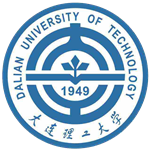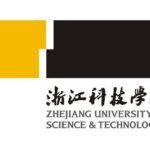University Description
Dalian University of Technology is the first formal university of a new type founded by the Communist Party of China on the eve of the founding of the People’s Republic of China, for the construction of China’s industrial system.
Dalian University of Technology (DUT) is a national key university administrated directly under the Ministry of Education of China, which is also sponsored by Project 211 and Project 985. DUT keeps fostering elites, promoting science and technology, inheriting excellent cultures and guiding the social climate as its mission, adheres to DUT spirit of “Unity and Progress, Truth and Innovation”, dedicates itself to the creation, discovery, impart, conservation and application of knowledge, and endeavors to undertake social responsibilities to serve the country and the world.
Dalian University of Technology was established in April 1949, as the School of Engineering of Dalian University; In July 1950, the establishment of Dalian University was revoked, from which School of Engineering got independence as Dalian Institute of Technology; In October 1960, the Institute was identified as the National Key University directly under the leadership of the Ministry of Education of China; In April 1986, the graduate school was established; In March 1988, the institute was renamed as Dalian University of Technology; In 1996, DUT started the implementation of “Project 211” construction, with the joint efforts of the Ministry of Education, Liaoning Province and Dalian City; In 2001, the university started to implement the “Project 985” Construction, by the Ministry of Education, Liaoning Province and Dalian City; In 2003,the university was identified as university whose cadres were appointed by the Central Committee of CPC; In December 2012, the Ministry of Education formally approved the Dalian University of Technology to build Panjin campus; Based on the key principles of ‘strategic planning, high standard, innovative teaching and learning’, Panjin campus has positioned itself to achieve academic standards which parallel those offered on the main campus; In September 2017, approved by the State Council, DUT was selected into the “World-class University Construction Plan”, category A.
The university faculty includes 4321 teachers (among which 2650 are full-time teachers), 10 members of Chinese Academy of Sciences and members of Chinese Academy of Engineering in full-time faculty, 30 in part-time faculty, 11 members of the Discipline Review Group of Academic Degrees Committee of the State Council, 29 selected in “Thousand Talents Plan”, 29 Distinguished Professors and 14 Chair Professors of “Cheung Kong Scholar Program”, 7 Cheung Kong Youth Scholar, 35 winners of China National Funds for Distinguished Young Scientists, 10 chief scientists of the “973 Project”, 2 chief scientists of young scientist special projects of the “973 Project”, 15 National candidates of “Hundred, Thousand and Ten Thousand Talent Project”, 10 Youth Science and Technology Innovation Leaders of Innovative Talent Promotion Program of the Ministry of Science and Technology, 17 winners of Trans-Century Training Programs Foundation for the Talents of the State Education Commission, 123 selected in the Program for New Century Excellent Talents in University of the Ministry of Education, 4 winners of National Higher Education Distinguished Teacher Award, 2 winners of Teacher Award in the “Ten Thousand Talents Plan”, and 31 winners of Higher Education Distinguished Teacher Award of Liaoning Province, 726 Ph.D. supervisors, 808 professors and 1098 associate professors among full-time faculty members. DUT has now 42,041 full-time students, including over 4,836 Ph. D. students, 10,893 Master students, 25,380 undergraduates and 860 international students. The university also has 3,432 part-time students enrolled in professional master degree programs.
DUT keeps the education of talents as its primary mission and attaches equal importance to undergraduate and graduate programs. It has formed a multi-disciplinary system which focuses on science and engineering and coordinates science, engineering, economics, management, humanities, law, philosophy and arts. The university has 1 graduate school, 7 faculties (with 1 faculty having 3 independent academic schools), 8 independent academic schools and teaching departments, 3 special schools and 1 independent college. Panjin campus has 1 teaching department and 7 academic schools; Development zone campus has 3 academic schools.
The university has now 4 national key primary disciplines (Dynamics, Hydraulic engineering, Chemical Engineering and Technology, Management Science and Engineering, covering 15 secondary disciplines), 6 national key secondary disciplines (Computational Mathematics, Plasma Physics, Mechanical Manufacturing and Automation, Structural Engineering, Structural Analysis for Industrial Equipment, Environmental Engineering), and 2 national key secondary (cultivating) disciplines. There are 27 Ph. D. programs in the primary disciplines, 130 Ph.D. programs in the secondary disciplines, 42 Master programs in the primary disciplines, 220 Master programs in the secondary disciplines, 25 post-doctoral research stations. The University was authorized to offer master degrees to part-time college teachers and to offer professional degrees covering 12 disciplines, including Master of Business Administration (MBA, including EMBA), Master of Public Administration (MPA), Master of Architecture, Master of Engineering, Master of Finance, Master of Applied Statistics, Master of Arts, Master of Translation and Interpreting (MTI), Master of Engineering Management, Master of Arts and Communication, Master of Urban Planning, and Master of Chinese as Foreign Language.


-Logo.png)
